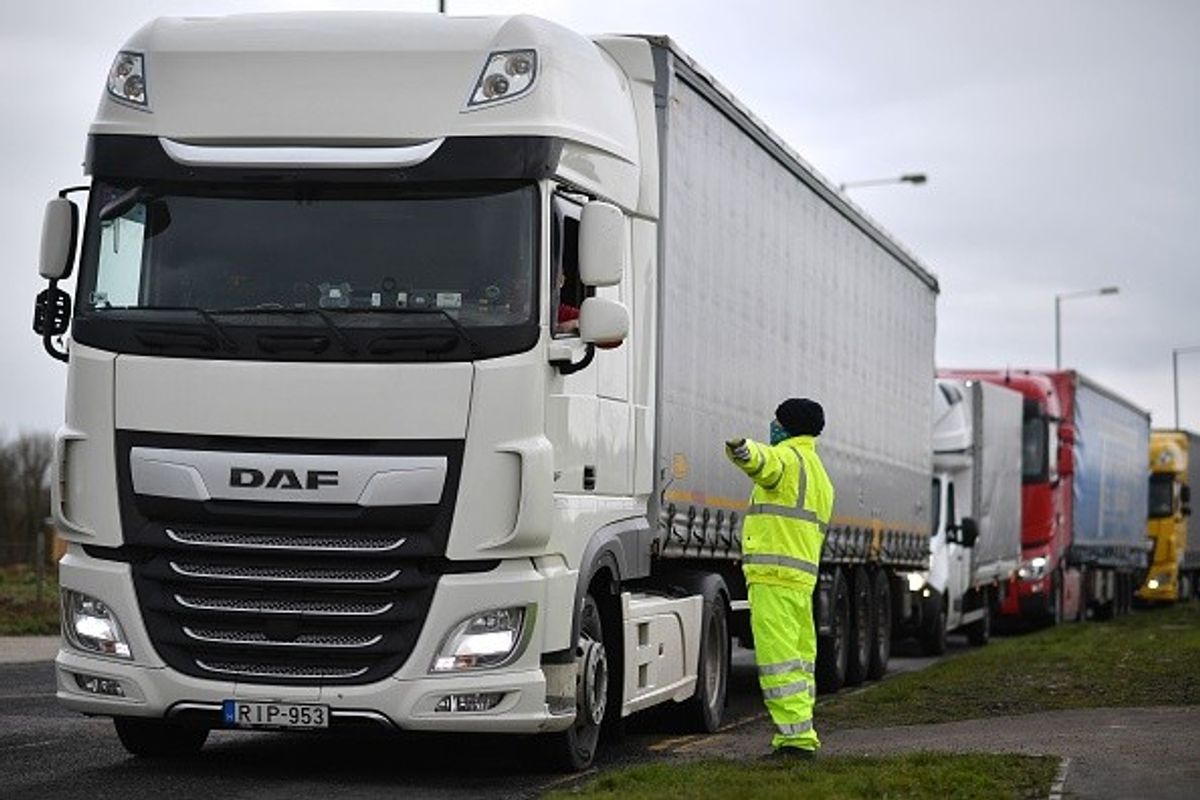Panzer's delicatessen in north west London has lost 37 suppliers from the European Union since Britain left the bloc's single market in 2021, and owner David Josephs fears more will quit after the UK introduces new border checks this month.
Britain voted to leave the EU in 2016 but, such was the scale of the task to untangle supply chains and erect customs borders, that it is only this year setting new rules.
EU exporters of chilled and frozen meat, fish, cheese, dairy products and some cut flowers have had to present health certificates, signed off by a vet or plant inspector, since 31 January - a demand that smaller British retailers and wholesalers say can delay the arrival of goods by weeks.
They are now warning that the start of physical checks, along with higher charges, from 30 April will restrict the variety and freshness of fine artisan foods such as charcuterie, cheese, pasta and olive oil, and that prices will rise.
"We find small independent producers making fabulous things that you wouldn't necessarily see outside their region and we're bringing them into London but it's getting harder, because some of them don't want to do the paperwork," said Patricia Michelson, owner of retailer and wholesaler La Fromagerie.
The new hurdles risk unravelling Britain's diversity of food and drink, said John Farrand, managing director of the Guild of Fine Food, which represents 12,000 independent food businesses.
"Only the very biggest processors and retailers are going to be able to deal with this bureaucracy and the extent of these checks," he said.
"The smaller producers and retailers will just give up and we'll end up with less choice and less good food and drink."
The government says the new checks will help prevent diseases and pests entering Britain.
It also says it will level the playing field for British exporters. In 2021 the EU immediately enforced its rules, leading to port delays and prompting some British exporters to stop selling to the bloc, at least initially.
Fears of Supply Disruption
Delicatessen owner Josephs, who sells products from more than 80 countries and supplies nearly 200 restaurants, says Brexit has been a disaster for his business.
"The government says there won't be any disruption. I guarantee there will be," he said. "We already have some meat suppliers who are saying it's becoming debatable as to whether or not it's economically viable to supply the UK."
Nick Carlucci, sales director of Italian foods seller Tenuta Marmorelle based in Berkshire, southern England, said the January changes raised costs and lengthened lead times for some goods by a week. He imports olive oil from his family-owned farm in Puglia, burrata and buffalo mozzarella cheese, balsamic vinegar, sliced meats, pasta, antipasti and panettone.
He said importing just one pallet of five or more different sliced meats would, from 30 April, cost him £432 more than before Brexit, with £120 going on a vet certificate and £195 on fees and charges the government has introduced to cover the costs of its new system.
Carlucci imports 15 to 20 pallets a week and said the additional costs will hammer his profit margin by 10 per cent.
"We're bringing over artisanal products from small producers with a short shelf-life," he said. "We need to have those products turning over constantly."
Worried about bottlenecks at the Port of Dover, Britain's biggest port, he is stocking up as much as he can.
The higher costs will have to be passed on.
"We do our best to absorb as much as we can, but we have to pass it on to our customers, which are farm shops, food halls and delis," he said, noting the price of a 150 gram (5 ounce) tray of Parma ham would rise by 17 pence, or 4 per cent, at the end of the month.
Government to Take 'Pragmatic Approach'
There is still confusion over what the frequency of checks will be.
The government says it will take a "pragmatic approach" and does not expect significant disruption to imports.
"The goods posing the highest biosecurity risk are being prioritised as we build up to full check rates and high levels of compliance," said a government spokesperson.
It estimates its border rules will increase costs for importers collectively by £330 million a year, and increase food inflation by just 0.2 per cent over three years.
British food inflation leapt to a 45-year high of 19.2 per cent in March 2023 on surging energy costs, labour shortages and disruption to Ukrainian exports, but it fell to 4 per cent in March.
Andreas Georghiou, who imports from small producers in France, Italy, Spain and Greece for his fine foods and ingredients store in south west London, expects the worst.
"They're not geared up for doing certification, they're not geared up for having vets coming to visit, so they're just saying no," he said.
At a recent trade show in Florence, the April changes dominated the conversation, said Carlucci.
"Everybody was saying, what is the UK doing? It was sort of disbelief really."
(Reuters)





